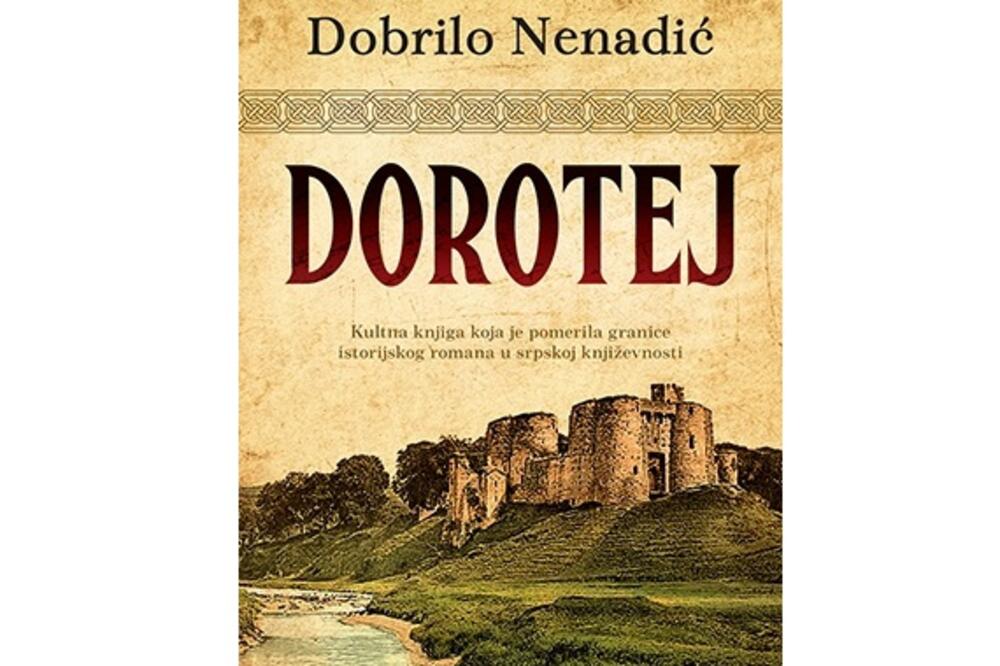"The policemen of mental suffering have disappeared, all the mountaineers are ready, orni to the ancestor", once sang the great Serbian poet Brana Petrović in the famous poem with the vivid title "O cursed if you are the street of Riga from Fera". Namely, in that Belgrade street, there was a police station where BP slept more than once. (There are certainly militiamen at the Dam.)
I remembered this dear verse (and dear poet) on the occasion of another happy story from Serbia. Almost like new Kovačevićev piece.
What a legendary wording - "disappeared to mental suffering". Just that. Things get crazy when the cops start analyzing the literature. It's a treat for the sweet tooth. Born critics. The ecstasy of palanquin self-satisfaction.
Dorothy is, from the beginning, an unusual literary story. An almost anonymous agronomist from Arilje sent the manuscript to the then important competition of the associated Belgrade publishers (Rad, Bigz, Narodna knjiga). The year is 1977, it was a beautiful edition and a fierce echo. If I remember correctly, there were also new books Josić Višnjić (Twelve years), Ranko Jovović (A wild cry), Milan Milišić (Building) ...
Dorothy became a hit, dozens of editions followed, and in 1981 Zdravko Velimirović he made a (not very spectacular) movie with Gojko Šantić in the title role. He adapted the script Mihiz.
Dobrilo Nenadic wrote many novels after Dorothea, but none of them experienced such success with the audience and critics. From today's point of view, the most favorable approach would be to note that Nenadić in Arilje writes that novel at the same time as Umberto Eco The name of the rose in Milan, which testifies that the agronomist at that moment "felt" the spirit of the new historicism that was just looming over the European literature of the time. Because even in Nenadić's novel, it is about a trip to the Middle Ages, which, unexpectedly, was interesting to everyone. Of course, the literary result is not equally valuable, Dorothy could hardly be called a great novel, but the author's sense of the zeitgeist is undeniable. That spirit of historicism in our region will evolve into political retardation, while, read differently, it could be a reason for various re-examinations.
Even today, almost half a century after its publication, that novel in Serbia is becoming - questionable. In a manner worthy of the most devastating parody.
On the one hand, it is also unusual since, with its medieval sentimentality, this novel certainly represents favorite reading and the so-called more conservative, traditional readers. Even that medieval tone, which is very desirable in today's Serbia, did not help in the face of the dragon of fornication. It turned out that this novel also contains a scene that the policemen perceive as a threat to public morality. The monk describes the act of love he witnessed, and his own reaction. Inadmissible, say the policemen.
And they appeal to parents, in an appeal that clearly points to the worldview behind everything - not to expose children to such temptations, something like - when you've already taken them for vaccination, at least protect them from this evil... Uh.
For the most part, this police story is about the time of mediocrity and primitives ready for anything, but, on the other hand, this also fits into the current global trend. Dumbing down, simply put. This is where literature seems to get in the way. In recent years, we have read how the works of old writers are being "arranged" anew, adapting to the spirit of political correctness, which, unfortunately, often becomes a form of new unfreedom. The books are cleaned, it's not even that the bonfires are turned off. But that's okay - books are most alive when they're burned...
"I was in Serbia/Serbia is in captivity", famous lyrics Petar Pajić (to invoke another Serbian poet) sound almost literal today. In the simplest terms - if the police determine what will be the reading material, then it is not the state, but the prison.
Bonus video:





